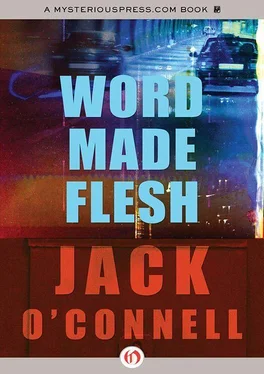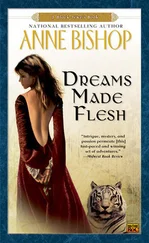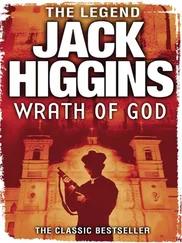It was Wylie who conclusively determined that the original labyrinth had, in fact, been constructed by E. C. Brockden himself. An earlier Brockden scholar, whom Wylie called, often and with a kind of glee, “a chronically pissed-off revisionist,” had posited that it was one of the later owners who was responsible for the book maze. Certainly there were sections of the tunnels that Brockden couldn’t possibly have forged given the materials used in their construction. But the initial conception, design, and assembly were all the work of Brockden, the man whom at least one limerick has memorialized as King of the Worms.
Subterranea was the start of Brockden’s final descent into madness, as Wylie had explained, a little melodramatically, Gilrein thought, the first time he took her down below. She had, of course, read deeply in all the specialty works devoted to the network of veins that comprised the underground library. She’d studied the photostats of Brockden’s original line drawings and compared them to the most recent computer-generated blue-prints commissioned by the Brockden Society. She’d familiarized herself to the point of memorization with the titles of all the books found lining the walls of the labyrinth and spent innumerable hours at the Southwick reviewing the manifest with a red pencil and either agreeing or disagreeing with the judgments as to which volumes belonged to Brockden and which had been added by later Wormland owners.
Measured in a straight-ahead, linear fashion, the corridors that comprise the labyrinth run on for close to half a mile, but the layout of the book maze is anything but linear. It turns and twists and wraps back upon itself and so, like human intestines or a wound ball of twine, the eight hundred yards of negotiable space occupy a subsurface cavern that lies beneath a circular plot of earth stretching only to the valley at the edge of the orchards.
There’s no reason to believe that he’ll find books here on the city of Maisel. Brockden’s original stock mainly consisted of obscure theological tracts and fringe science texts. The more recent volumes deposited by the interim owners were a hodge-podge of forgotten novels and manuals of the occult and a sampling of the more notorious, hysterically paranoid political manifestos of the past two hundred years.
The logical course would be to head for the public library and pull everything on rare Bohemian tomes. But that would mean waiting and thinking and remembering, lying in the barn loft, soaking in the now compulsive recollections of how Ceil came into his life and how she departed, culminating always in a vivid skull cinema that can only screen one feature — the Rome Avenue Raid. And the last way Gilrein wants to welcome the dawn is by morbidly pawing over a series of past events that can’t be changed by hope or good deeds or even the exchange of one life for another.
So he climbs down into the hole and starts walking randomly, moving through the left tunnel when he comes to the first fork. How many times has Gilrein been through the labyrinth? Fewer than one might think. After Frankie first showed him the tunnels he ventured down alone two or three times, but on each occasion he found the maze more claustrophobic, especially when he’d reach the crawl space sections that could only be traversed on hands and knees.
But then, after the romance with Wylie began, he started to accompany her into the hole and was surprised to find that his phobic reaction had lessened to the point where they could spend hours following passageways to their walled-off conclusions. In fact, it was in the labyrinth that Gilrein and Wylie first consummated their relationship when she tripped on an unseen pile of books left in the walkway and fell backward into Gilrein. He caught her, but lost his own balance and they both went down to the ground, dropping flashlights and landing in an awkward but intimate embrace that, shocking the two of them, took on a life of its own and culminated, somehow, twenty minutes later, with both their jeans loose around their ankles and their legs and asses covered with cold, moist dirt.
“What would Edgar think?” was all Gilrein could come up with between breaths.
Wylie further shocked herself by loving his irreverence and she spent the sleeping hours of the next week in the Checker, keeping him company through all manner of quixotic fares in Bangkok Park and the Canal Zone, lecturing him in a loose and haphazard style on the life, madness, and death of Edgar Carwin Brockden.
Now, he thinks of all she taught him, can hear Wylie’s voice as he throws a light across the spines of the thousands of books that line the curving, narrowing, disappearing walls of Subterranea. And he thinks for the first time that though he may never share Wylie’s fascination with the life of Brockden, he suddenly understands the frustration she feels at the heart of her research. Because, though Wylie can tell you, in obsessive and intricate detail, what happened to Edgar Brockden, she can’t tell you why it happened.
No one can. Gilrein is sure of this. If all of these volumes of print gathered around him, here below the stony ground of Quinsigamond, somehow managed to transmogrify themselves and each grew tongue and larynx and the intellectual mechanics necessary for communication, they’d all fall silent when confronted with the unique components of one man’s insanity. Madness is always a singularity. Gilrein knows this no matter how many learned scholars of the mind might demonstrate patterns, systemic consistencies, series of long-proven repetitions. When a man falls away from any trace of rationality, it is a lone, unprecedented descent. And Gilrein’s certainty of this fact is a surety born, not of clinical observation and analysis, but of the kind of sharp and pressing and parasitical truth that lives at the bottom of the belly, without known origin or end, like a legendary and eventually doomed redeemer.
He lets himself wander, neither following an established route nor memorizing his current path. Every now and then he stops and faces a wall of books, reads a number of titles— The Heresy of Jesuit Education, The Meretricious Cost of Our Demise, The Lair of the Scarlet Filariasis— their gilt letters wearing toward illegibility. At one point he’s forced to duck down to a squat and waddle through a particularly low segment of tunnel. At the end of this segment he stops and shines his beam left and right. On the right hand wall, instead of books, he finds one of those rare notches that Wylie always considered the high point of their underground sojourns. At seven locations throughout the labyrinth, Brockden carved out of the rock face a small indentation or crevice and outfitted each with a ritual altar. To this day, the man’s original implements and tools remain displayed upon the altars — skiving knives and stitching needles; paste brushes and dried-up jars of homemade glues; brittle, desiccated pieces of scrap leather and small stacks of marbled paper and wooden screw vises. To Gilrein, the altars resemble temple sites for ancient ritual sacrifice, like places he’s seen in documentaries about lost cultures and mystery religions. But Wylie assured him that they were simply workstations where Brockden retreated to calm his fevered mind with lengthy sessions of bookbinding and repair.
“If that’s true,” Gilrein once challenged her, “his little hobby didn’t quite do the trick.”
“In the end,” she acknowledged, “I don’t think anything would have.”
In retrospect, it seems to Gilrein that Wylie had some difficulty directly approaching the subject of the Brockden family’s final days. But she found ways of chronically, if opaquely, alluding to it in a tone that suggested the clan’s horrific demise was somehow, two hundred years after the fact, her fault rather than the result of a man whose brain chemistry had become so unbalanced that he committed the most grievous outrage of all.
Читать дальше












